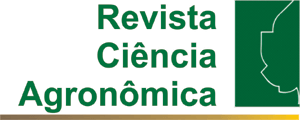The aim of this study was to evaluate the influence of three irrigation systems on the gas exchange and technological qualities of the sugarcane variety RB 92579, for three consecutive cycles, grown in two types of soil in the Lower Basin region of San Francisco in Brazil. The experiments were set up in a randomised-block design, with six replications, in areas of sandy and clayey soil. The irrigation systems used were: furrow, surface drip and subsurface drip. The following physiological characteristics of the plants were evaluated: net photosynthesis, stomatal conductance, transpiration and leaf temperature. In the technological analyses, levels were determined for soluble solids, percentage of industrial fibre, juice purity, percentage of raw sugar, reducing sugars and moisture. It was found that subsurface drip irrigation in sandy soil impairs the gas exchange of the crop. The irrigation systems did not influence the technological quality of the stalks when grown in sandy soil. In clay soil, furrow irrigation impairs the maturation process of the stems.
Photosynthesis; Transpiration; ºBrix; Furrow; Drip

 Physiological and technological responses of sugarcane to different irrigation systems
Physiological and technological responses of sugarcane to different irrigation systems Thumbnail
Thumbnail
 Thumbnail
Thumbnail
 Thumbnail
Thumbnail
 Thumbnail
Thumbnail
 Thumbnail
Thumbnail
 Thumbnail
Thumbnail
 Thumbnail
Thumbnail
 Thumbnail
Thumbnail







